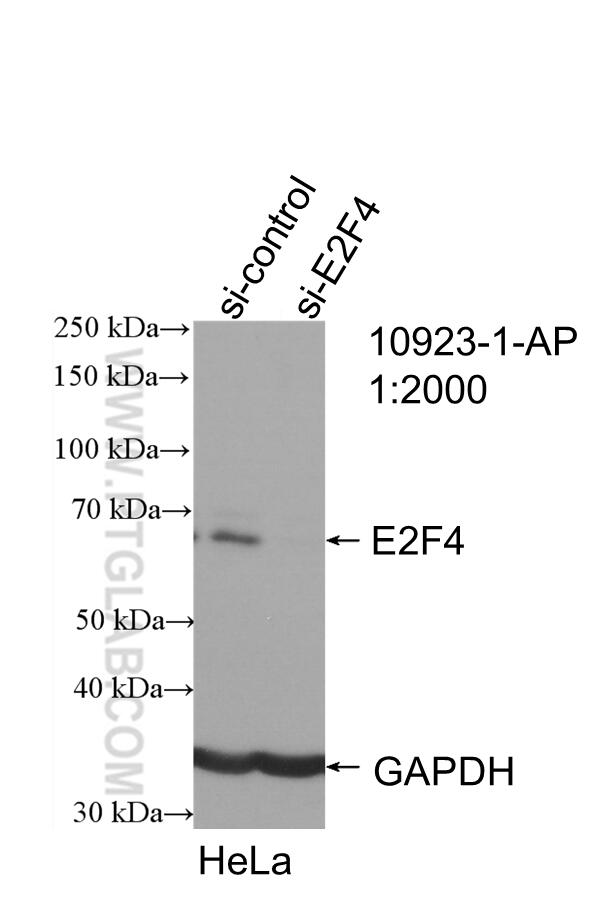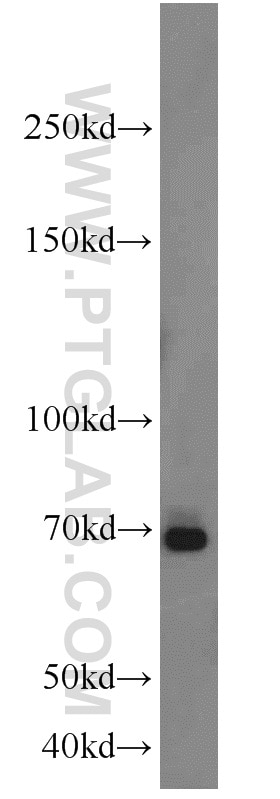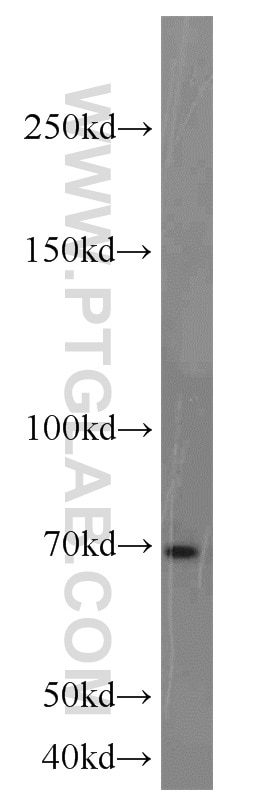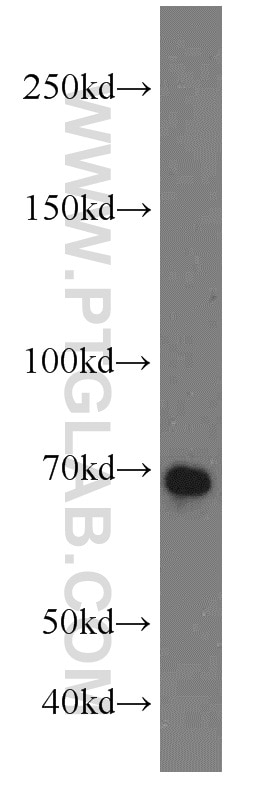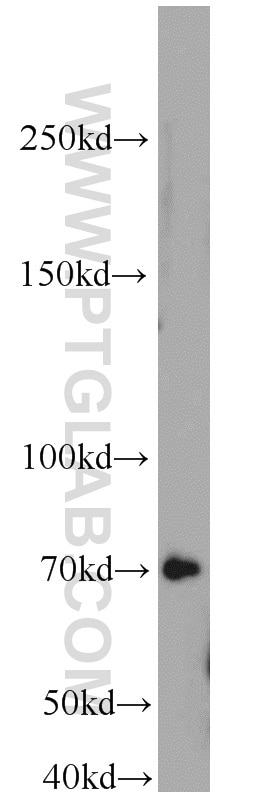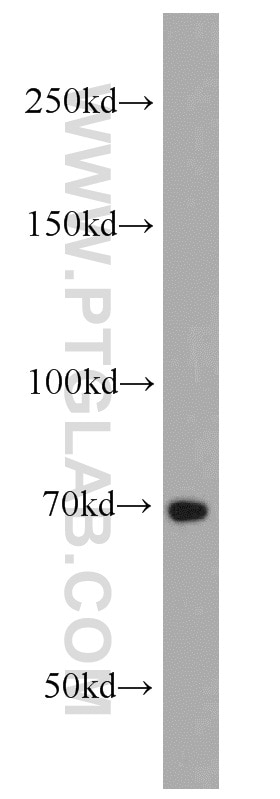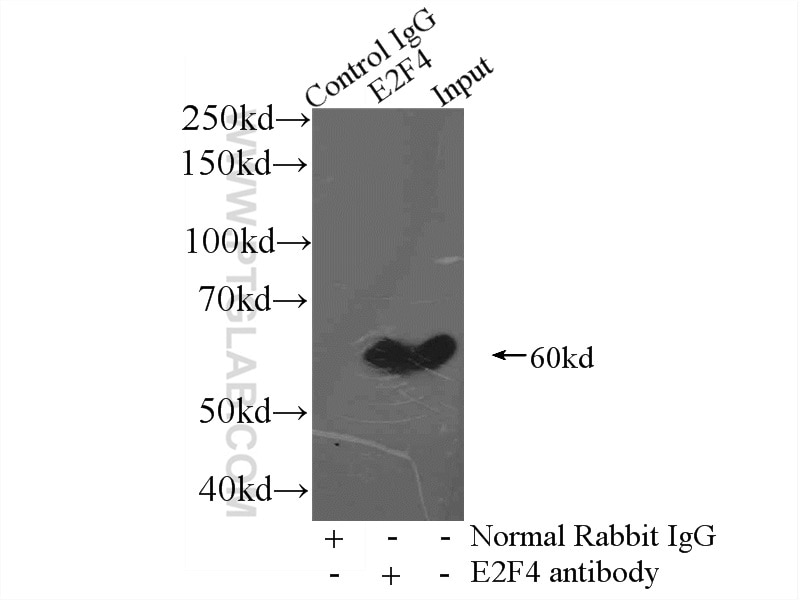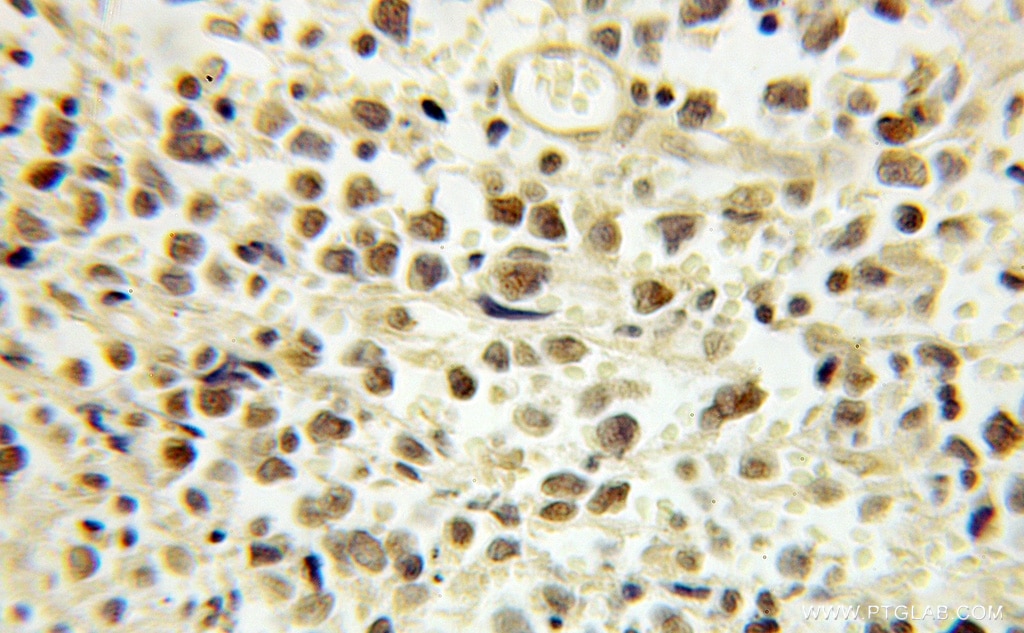- Featured Product
- KD/KO Validated
E2F4 Polyklonaler Antikörper
E2F4 Polyklonal Antikörper für WB, IP, IHC, ELISA
Wirt / Isotyp
Kaninchen / IgG
Getestete Reaktivität
human, Maus, Ratte
Anwendung
WB, IP, IF, IHC, ChIP, ELISA
Konjugation
Unkonjugiert
Kat-Nr. : 10923-1-AP
Synonyme
Galerie der Validierungsdaten
Geprüfte Anwendungen
| Erfolgreiche Detektion in WB | A431-Zellen, HeLa-Zellen, HL-60-Zellen, Jurkat-Zellen, NIH/3T3-Zellen, Raji-Zellen |
| Erfolgreiche IP | Maushirngewebe |
| Erfolgreiche Detektion in IHC | humanes Lymphomgewebe Hinweis: Antigendemaskierung mit TE-Puffer pH 9,0 empfohlen. (*) Wahlweise kann die Antigendemaskierung auch mit Citratpuffer pH 6,0 erfolgen. |
Empfohlene Verdünnung
| Anwendung | Verdünnung |
|---|---|
| Western Blot (WB) | WB : 1:500-1:2000 |
| Immunpräzipitation (IP) | IP : 0.5-4.0 ug for 1.0-3.0 mg of total protein lysate |
| Immunhistochemie (IHC) | IHC : 1:20-1:200 |
| It is recommended that this reagent should be titrated in each testing system to obtain optimal results. | |
| Sample-dependent, check data in validation data gallery | |
Veröffentlichte Anwendungen
| KD/KO | See 2 publications below |
| WB | See 12 publications below |
| IHC | See 1 publications below |
| IF | See 1 publications below |
| IP | See 1 publications below |
| ChIP | See 2 publications below |
Produktinformation
10923-1-AP bindet in WB, IP, IF, IHC, ChIP, ELISA E2F4 und zeigt Reaktivität mit human, Maus, Ratten
| Getestete Reaktivität | human, Maus, Ratte |
| In Publikationen genannte Reaktivität | human, Maus |
| Wirt / Isotyp | Kaninchen / IgG |
| Klonalität | Polyklonal |
| Typ | Antikörper |
| Immunogen | E2F4 fusion protein Ag1365 |
| Vollständiger Name | E2F transcription factor 4, p107/p130-binding |
| Berechnetes Molekulargewicht | 44 kDa |
| Beobachtetes Molekulargewicht | 60-70 kDa |
| GenBank-Zugangsnummer | BC033180 |
| Gene symbol | E2F4 |
| Gene ID (NCBI) | 1874 |
| Konjugation | Unkonjugiert |
| Form | Liquid |
| Reinigungsmethode | Antigen-Affinitätsreinigung |
| Lagerungspuffer | PBS mit 0.02% Natriumazid und 50% Glycerin pH 7.3. |
| Lagerungsbedingungen | Bei -20°C lagern. Nach dem Versand ein Jahr lang stabil Aliquotieren ist bei -20oC Lagerung nicht notwendig. 20ul Größen enthalten 0,1% BSA. |
Hintergrundinformationen
Transcription factor E2F4 (E2F4) is a transcription activator that binds DNA cooperatively with DP proteins through the E2 recognition site 5'-TTTC[CG]CGC-3' found in the promoter region of a number of genes whose products are involved in cell cycle regulation or in DNA replication. The DRTF1/E2F complex functions in the control of cell-cycle progression from G1 to S phase. E2F-4 binds with high affinity to RBL1 and RBL2. In some instances, can also bind RB protein.The observed molecular weight of 60-70 kDa is the phosphorylation of E2F4 protein.
Protokolle
| Produktspezifische Protokolle | |
|---|---|
| WB protocol for E2F4 antibody 10923-1-AP | Protokoll herunterladen |
| IHC protocol for E2F4 antibody 10923-1-AP | Protokoll herunterladen |
| IP protocol for E2F4 antibody 10923-1-AP | Protokoll herunterladen |
| Standard-Protokolle | |
|---|---|
| Klicken Sie hier, um unsere Standardprotokolle anzuzeigen |
Publikationen
| Species | Application | Title |
|---|---|---|
Protein Cell Unveiling E2F4, TEAD1 and AP-1 as regulatory transcription factors of the replicative senescence program by multi-omics analysis. | ||
Ecotoxicol Environ Saf Proteomic analysis reveals that cigarette smoke exposure diminishes ovarian reserve in mice by disrupting the CREB1-mediated ovarian granulosa cell proliferation-apoptosis balance | ||
Oncogene Regulatory networks in mechanotransduction reveal key genes in promoting cancer cell stemness and proliferation. | ||
J Cell Physiol Stable overexpression of p130/E2F4 affects the multipotential abilities of bone-marrow-derived mesenchymal stem cells. | ||
PLoS One Non-steroidal anti-inflammatory drugs decrease E2F1 expression and inhibit cell growth in ovarian cancer cells. | ||
Cell Death Dis Metformin sensitises hepatocarcinoma cells to methotrexate by targeting dihydrofolate reductase.
|
